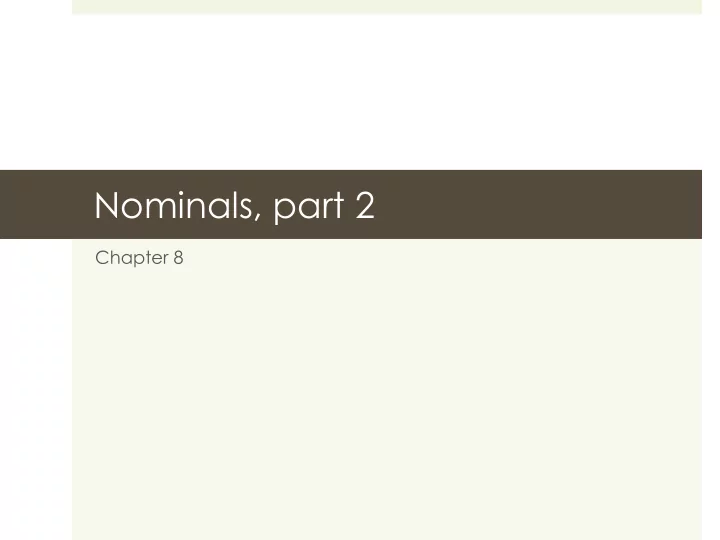

Nominals, part 2 Chapter 8
Nominal clauses ¤ Dependent- cannot be a complete sentence ¤ Boundaries can be found by using the pronoun substitution rule ¤ I understand that you are upset. ¤ I understand it. ¤ I understand that you are upset. ¤ *may or may not be signaled by expletive that
Nominal clauses in NP slots
Nominalization with “that”
Nominalization with “that” I didn’t know that today is your birthday. That the bill failed is unbelievable.
Adjectival vs. Nominal clauses ¤ Difference between relative (adjectival) clauses and nominal clauses? ¤ The boat that he wants is there. ¤ I knew that he wanted a boat. ¤ In adjectival clauses, the relative pronoun has a function in the clause ¤ In nominal clauses, the “that” is an expletive (no function), and the entire clause takes the place of a NP
Investigating language 8.2, p. 180 ¤ Look at the example sentences, starting with “The color that you chose for the walls doesn’t match the rug.” ¤ Are these that clauses adverbial or adjectival?
“Be” clauses
Nominal clauses as appositives
Interrogatives
Interrogatives
Interrogatives
Interrogatives
Exercise 36- p. 182 ¤ Analyze and diagram the evens ¤ You are determining whether the when and where clauses are adverbial (subordinate) or nominal. Examples: a. Julie could not remember where she had left her keys. Julie could not remember it . (nominal) b. When I get in late, my roommate gets upset. Movable, doesn’t have a function in the clause= adverbial
Exercise 37, p. 183 Diagram the evens
Recommend
More recommend